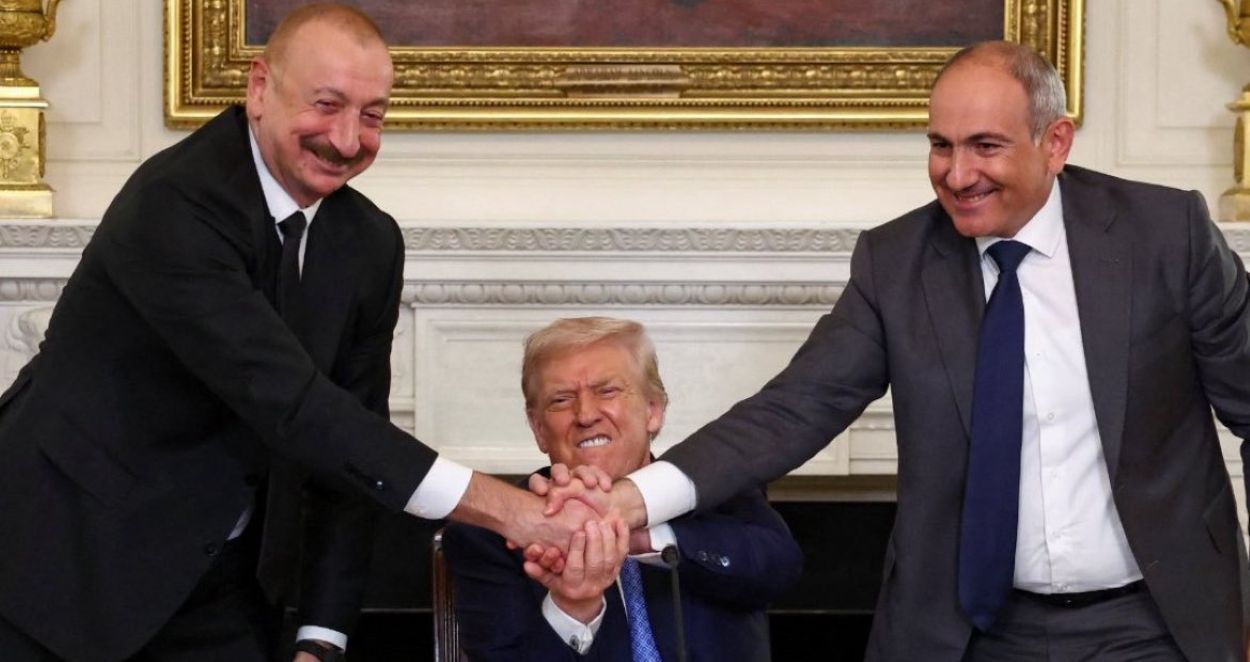On August 8, 2025, U.S. President Donald J. Trump hosted Azerbaijani President Ilham Aliyev and Armenian Prime Minister Nikol Pashinyan at the White House, where they signed a historic joint declaration for peace, ending decades of conflict, as reported by the White House
The agreement marked a significant achievement in South Caucasus diplomacy and was accompanied by bilateral economic deals with the U.S., creating new opportunities in trade, energy, and infrastructure.
The trilateral summit resulted in a peace declaration signed by the foreign ministers of Azerbaijan and Armenia, committing to further actions towards a ratified peace treaty. Key points include:
- Dissolving the OSCE Minsk Group, deemed irrelevant.
- Opening a transit corridor, named the Trump Route for International Peace and Prosperity, connecting Azerbaijan to Nakhchivan through Armenia.
- Promoting mutual respect and rejecting past conflicts.
Aliyev commended Trump, stating, “Within months, he resolved conflicts in Asia, Africa, and now the South Caucasus.” Meanwhile, Pashinyan remarked, “This breakthrough would not have been possible without Trump’s commitment.” The economic agreements are designed to enhance U.S. cooperation in technology, energy, and trade.
President Donald J. Trump, Azerbaijani President Ilham Aliyev, and Armenian Prime Minister Nikol Pashinyan sign peace and economic agreements at the White House pic.twitter.com/yUvKZf0g0r
— Rapid Response 47 (@RapidResponse47) August 8, 2025The peace deal, concluded after a 35-year conflict between Armenia and Azerbaijan over Nagorno-Karabakh, diminishes Russia’s influence in the region. This shift is partly due to the decline of Moscow’s mediation role following the 2022 invasion of Ukraine. The agreement, referred to as the Trump Route, enhances connectivity while respecting Armenia’s sovereignty and positions the U.S. as a significant player in the South Caucasus. This accord is in line with Trump’s broader peace initiatives, which also include agreements between Israel and Iran, as well as between India and Pakistan.
Read: Trump Plans Military Action Against Latin American Cartels
The agreement represents a significant step forward; however, implementing the peace treaty and managing the transit corridor will require ongoing cooperation. U.S. mediation helped resolve Azerbaijan’s previous insistence on a land bridge and Armenia’s concerns about sovereignty, but continuous diplomatic efforts are essential. If successful, this deal could inspire greater regional stability, although geopolitical tensions remain.






